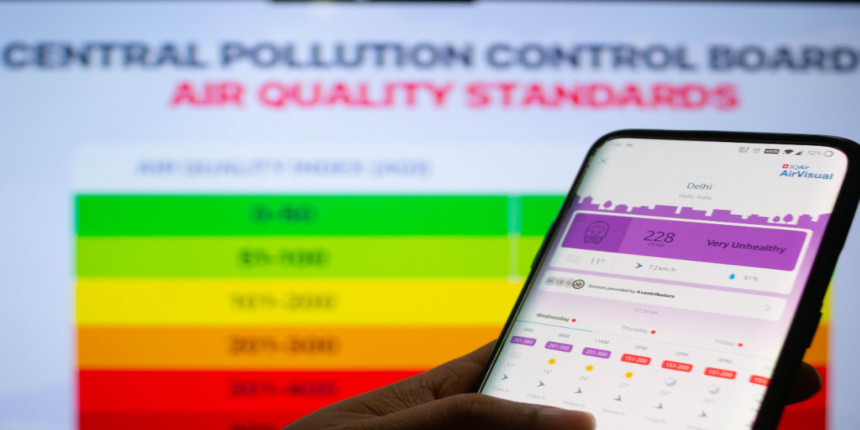CPCB Full Form
What is the full form of CPCB?
The full form of CPCB is the Central Pollution Control Board. Central Pollution Control Board is an organization that runs under the supervision of the Ministry of Environment, Forest, and Climate Change. Its duties include maintaining monitoring data and doing water and air quality monitoring. A wide range of voluntary pollution prevention activities and energy conservation initiatives are also undertaken by the agency in collaboration with businesses and all tiers of government.
- CPCB: Central Pollution Control Board
- History of CPCB
- Components Tracked by CPCB
- Functions of CPCB
- CPCB Projects
- Career in CPCB
- Eligibility

CPCB: Central Pollution Control Board
The Ministry of Environment, Forests and Climate Change is the legal home of the Central Pollution Control Board (CPCB) of India. Founded in 1974 under the Water (Prevention and Control of Pollution Act), it was later given duties and authority under the Air (Prevention and Control of Pollution) Act, which was passed in 1981.
Water Pollution: Water sources such as rivers, lakes, oceans, groundwater, and aquifers become contaminated with industrial and agricultural effluents, which causes water pollution.
Air Pollution: Any physical, chemical, or biological alteration in the air is referred to as pollution. The major impact of air pollution on plants, animals, and people is caused by noxious gasses, dust, and smoke.
By offering advice and technical support, it directs the State Pollution Control Boards' actions and mediates conflicts between them.
History of CPCB
By giving the CPCB additional responsibilities, the Environment Protection Act (EPA) was introduced in 1986 to fill in the loopholes in the Water and Air Act. By generating pertinent data, providing scientific information, providing technical inputs for the creation of national policies and programs, training and developing manpower, and organizing activities for promoting awareness at various levels of the Government and the public, the CPCB plays a role in the reduction and control of pollution in the nation. The Central Government formed the Delhi Pollution Control Committee (DPCC) in 1991. It collaborates with the CPCB and NGT to reduce pollution in the capital.
Components Tracked by CPCB
In order to monitor and manage emissions from industries and other relevant sources to maintain air quality, it also runs the NAMP (National Air Quality Monitoring Programme). At ITO in New Delhi, the CPCT operates an automated junction control center. It continuously monitors RSPM (Respirable suspended particulate matter), Carbon monoxide, ozone, sulfur dioxide suspended particulate matter (SPM), and many more.
Functions of CPCB
By preventing, controlling, and reducing water pollution, the Central Pollution Control Board (CPCB) seeks to enhance the purity of streams and wells in various parts of the nation. Additionally, the CPCB wants to reduce air pollution and enhance air quality. India contains 55 minor rivers in addition to 14 large rivers and 44 medium rivers. The majority of rivers supplied by monsoon rains are dry all year long. A national network of water quality monitoring was built by the CPCB in cooperation with concerned SPCBs/PCCs. This network now has 1019 stations operating in 27 States and 6 Union Territories. Municipal solid waste must be gathered, separated, processed, and disposed of by the CPCB.
CPCB Projects
Several of CPCB's notable projects include:
To control and standardize the levels of affluents, the National Air Quality Monitoring Program measures the air quality and determines the source of pollution.
The monitoring equipment at the ITO intersection in New Delhi collects data on airborne particulate matter (RSPM, carbon dioxide, ozone, Sulphur dioxide, and SPM). It creates a daily report on air quality.
Career in CPCB
Scientists, lab assistants, technicians, private secretaries, clerks, and other positions are all actively recruited by CPCB. The CPCB conducts tests across India for this reason. The candidate may be posted anywhere in the nation after being chosen. A CPCB employee's average salary is INR7.1 Lakhs.
Eligibility
The requirements for various positions vary. Candidates must thus visit the relevant websites to review the eligibility requirements. For open positions, the prerequisites are:
Degree in management and relevant experience for senior officers.
A simple technical diploma and practical experience are required for lab technicians.
Frequently Asked Questions (FAQs)
CPCB stands for Central Pollution Control Board.
CPCB was established on 22 September 1974.
It is an organization that runs under the supervision of the Ministry of Environment, Forest, and Climate Change. Its duties include maintaining monitoring data and doing water and air quality monitoring.
For a senior officer post the candidate must have a degree in management with the required experience and for the technician post candidate must have a diploma in their field with work experience.
There are many vacancies available and are announced annually.